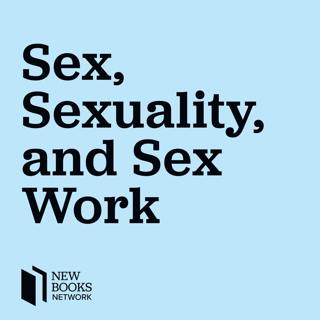
Galit Atlas, “The Enigma of Desire: Sex, Longing, and Belonging in Psychoanalysis” (Routledge, 2015)
This interview is really a conversation between two friends, peers, and colleagues–two women who were pleased to find each other in the psychoanalytic world who keep track of each others’ development. I confess this as a form of journalistic disclosure, but, also, because of our connection, this interview traverses much more than the book she recently published, The Enigma of Desire: Sex, Longing, and Belonging in Psychoanalysis (Routledge, 2015). I ask Galit Atlas a slew of questions about key concepts in the book: what is she after using terms such as “enigmatic,” “pragmatic,” and “breaks in unity” among them. We wander through the Kristevan garden of bodily fluids and abjection and ponder Kristeva’s appeal to Persian analysts like herself and Gohar Homanyapour (interviewed on NBIP by Anna Fishzon). We think about essentialism and motherhood and try to explore why sexuality takes precedence over desire in America. Her book title shares itself with one of Salvador Dali’s most famous paintings, The Enigma of Desire, or My Mother, My Mother, My Mother, from 1929. Discoursing upon his creation, also in an interview, Dali had this to say: “Sometimes I spit with pleasure on my mother’s portrait, since one can perfectly well love one’s mother and still dream that one spits upon her . . . now go and try to make people understand that.” Atlas’ book takes up Dali’s demand for work (as well as Andre Green’s plea for the re-establishment of sexuality as central to psychoanalysis), emphasizing sexuality and its many emanations in the clinic as speaking a language of its own. A clinically rich book, Atlas’ work schools its readers in a new way of listening for that which is inchoate and ineffable and worth hearing. Her thinking takes us on a trip beyond the mother-infant dyad, stopping to drink at the house of Laplanche with a little Ruth Stein only to deposit us closer to the drives, opening the door to the land of the autoerotic. Tracy D. Morgan is the founding editor and host of NBIP, a psychoanalyst in practice in NYC trained also as an historian, she writes about many things. Learn more about your ad choices. Visit megaphone.fm/adchoices
2 Kesä 201659min

Afsaneh Najmabadi, "Professing Selves: Transsexuality and Same-Sex Desire in Contemporary Iran" (Duke UP, 2013)
In her fascinating new book Professing Selves: Transsexuality and Same-Sex Desire in Contemporary Iran (Duke University Press, 2015), Afsaneh Najmabadi, Professor of History and of Studies of Women, Gender, and Sexuality at Harvard University, explores shifting meanings of transsexuality in contemporary Iran. By brilliantly combining historical and ethnographic inquiry, Najmabadi highlights the complex ways in which biomedical, psychiatric, and Islamic jurisprudential discourses and institutions conjoin to generate particular notions of acceptable and unacceptable sexuality. Moreover, she also shows some of the paradoxical ways in which state regulation enables certain possibilities and spaces for nonheteronormative sexuality in Iran. In our conversation, we talked about problems of translation involved in using Western categories in Gender and Sexuality Studies in the Iranian context, the certification process for sex change applicants in Iran, shifting conceptualizations of transsexuality overtime, continuities and ruptures seen in nonheteronormative masculinities in Tehran before and after the 1979 revolution, and the category of the narrative self. This multilayered book is at once lyrically written and theoretically exhilarating. It will be of much interest to students of gender and sexuality, Islamic law, religion and science, and of contemporary Iranian society. It will also make a wonderful choice for graduate and upper lever undergraduate courses on the same subjects. Learn more about your ad choices. Visit megaphone.fm/adchoices
30 Joulu 201556min

Angelique V. Nixon, “Resisting Paradise: Tourism, Diaspora, and Sexuality in Caribbean Culture” (U Press of Mississippi, 2015)
It’s easy to conjure images of paradise when thinking of the Caribbean. The region is know for its lovely beaches, temperate weather, and gorgeous landscapes. For the people who live there, however, living in paradise means dealing with tourists, inequality, exploitation, and corruption. While many scholars have published critiques of... Learn more about your ad choices. Visit megaphone.fm/adchoices
2 Joulu 201546min

Nancy Bauer, “How to Do Things With Pornography” (Harvard UP, 2015)
We live in a world awash with pornography, in the face of which anti-porn feminist philosophizing has not had much impact. In How to Do Things With Pornography (Harvard University Press, 2015), Nancy Bauer takes academic philosophy to task for being irrelevant and argues that philosophers should emulate Socrates in giving people reasons to reflect on their settled views. Bauer, who is professor of philosophy and dean of academic affairs for arts and sciences at Tufts University, considers the sexual objectification of women in contemporary society from several overlapping angles. She discusses the sense of empowerment that young women feel in today’s ‘hookup culture’ and defends a radical new reading J.L. Austin’s work on language that is at odds with the standard interpretation behind prominent feminist critiques of pornography. She also considers how white male dominance in academic philosophy has contributed to its lack of effectiveness, while applauding recent efforts by some to increase its diversity and its engagement with the public. Learn more about your ad choices. Visit megaphone.fm/adchoices
15 Marras 20151h 12min

Juanita De Barros, “Reproducing the British Caribbean: Sex, Gender, and Population Politics after Slavery” (UNC Press, 2014)
As slavery came to an end in the Caribbean’s British colonies, officials and local reformers began to worry about how and whether they would convince their newly freed workforce to continue working. More specifically, they worried about underpopulation, and whether the formerly enslaved population was reproducing quickly enough. This was... Learn more about your ad choices. Visit megaphone.fm/adchoices
6 Loka 201557min

James E. Strick, “Wilhelm Reich, Biologist” (Harvard UP, 2015)
“Life must have a father and mother…Science! I’m going to plant a bomb under its ass!” The author of the line above – who scrawled it in his private diary in the midst of a series of experiments in which he thought he was creating structures that were some kind of transitional stage between the living and nonliving – had quite a life. A “midwife to the sexual revolution of the 1960s” who was famed for his work on the science of orgasm, was widely maligned as a charlatan and pseudoscientist, did extensive work on the science of cancer, had his books and instruments publicly burned by the US government, and died in prison: it’s hard not to find Wilhelm Reich fascinating. In his new book, James E. Strick reminds us that Reich was also a diligent and accomplished laboratory scientist whose work has potentially important implications for the modern biosciences. Wilhelm Reich, Biologist (Harvard University Press, 2015) takes readers into the making of this modern scientist, from his early relationships with Freud and dialectical materialism, to his work on the orgasm as a kind of “electrophysiological discharge,” to his research into potential treatments for cancer. The book concludes by considering why understanding Reich’s scientific work matters for us today, including a brief introduction to some recent experimental work related to Reich’s research. It is an absorbing story that’s also a pleasure to read, and pays careful attention to Reich’s scientific work while still translating it in clear terms for non-specialist readers. Learn more about your ad choices. Visit megaphone.fm/adchoices
6 Loka 20151h 9min

Phil Tiermeyer, “Plane Queer: Labor, Sexuality, and AIDS in the History of Male Flight Attendants” (U of California Press, 2013)
Today’s guest discusses the history of sexuality in the workplace through the lens of male flight attendants. We speak with Phil Tiemeyer about the shifts and changes in the airline industry across the 20th century. Phil steers us through this history and reveals the importance and difficulty of braiding together race, gender, and sexuality in a study of the labor and capitalism. Phil Tiemeyer is Associate Professor of History at Philadelphia University. He is author of Plane Queer: Labor, Sexuality, and AIDS in the History of Male Flight Attendants (University of California Press, 2013). You can read more about his work here. Learn more about your ad choices. Visit megaphone.fm/adchoices
14 Syys 201538min


















